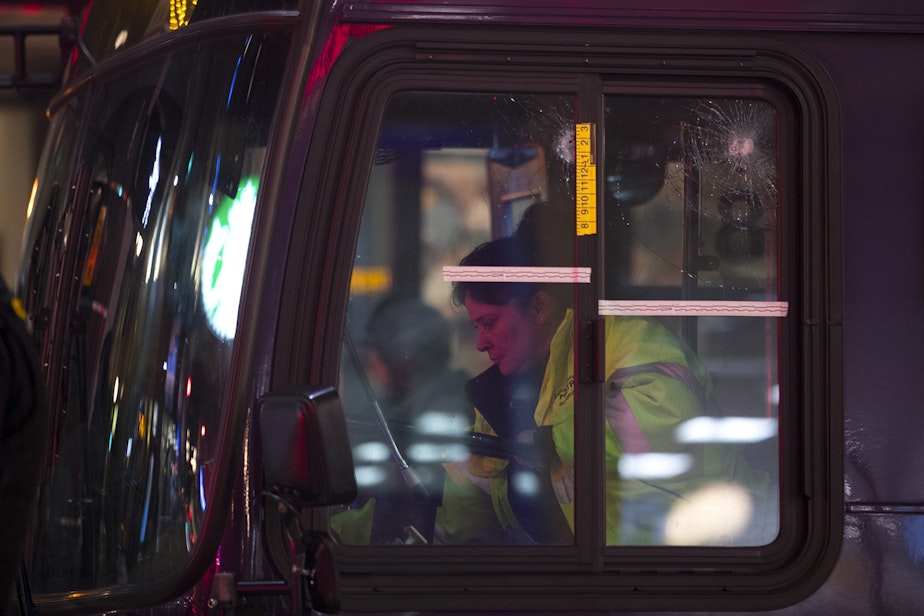Friday politics: How buses and public safety intertwine in downtown Seattle

A deadly shooting in downtown Seattle has produced a lot of finger-pointing over public safety and a debate about what comes next.
KUOW’s Angela King spoke with Joni Balter, host of the Seattle Channel’s “Civic Cocktail,” and Q13 political analyst C.R. Douglas about the political fallout.
Douglas argues that there’s an unusual factor in the equation: Transit.
C.R. Douglas: One big underappreciated contributor to the problem there on Third Avenue is that it serves as the city's major bus corridor. That alone pretty much kills any chance to have this healthy, vibrant, safe street life. Just go down there and you see all these loud and noisy and congested buses. During peak hours, they line up like a big moving wall on Third Avenue. And then you have all these people lined up at bus stops -- two, three, four, deep, blocking storefronts, blocking pedestrians, and actually providing a little bit of cover for some of the drug deals. So all that is incompatible with having a really great vibrant set of stores and restaurants. They just don't locate there. And so we're kind of stuck with this undesirable corridor because of how we're using it.
KING: Seattle police say they've increased foot patrols in the area. What do you think of the response thus far to what's been going on down there?
Joni Balter: We are hearing a lot of ideas that probably aren't going to solve this problem long term. Seattle City Councilmember Andrew Lewis came up with the idea of a storefront in the area, greater police presence. A good start, but it's not a new idea. It's been tried before and it proves very hard to sustain. After a shooting a few years back downtown, a police presence moved into a storefront inside Macy's. And over time, the staffing fell away. And that's what I'm afraid will happen this time on this current incident.
KING: So do you think this is more on the police, what's going on down there, or is this on prosecutors?
Douglas: There’s a growing consensus that a big piece of the problem is that is that our criminal justice system on the prosecution level is broken on this one. A small number of repeat offenders are responsible for a huge majority of the crime in our city. You're never going to reverse this problem until that piece is fixed. No amount of emphasis patrols will cure that repeat offender problem. It is a prosecution issue. I will just say quickly, though, context is important. We shouldn't lose perspective and overreact. Violent crime, property crime, they are down from levels they were just in 2018. And even if you look historically, crime is way down from historic highs from the '90s. Seattle is still a very safe city and we have a lot more people.
KING: Let's shift to another big story. Lawmakers in Olympia are talking about giving King County the ability to tax companies with high-earning employees. This sure looks like that head tax that was passed and then repealed in Seattle just a couple of years ago.
Balter: I think there is a certain amount of genius in this proposal. For starters, it takes the ball away from Seattle City Councilmember Kshama Sawant, who wanted to go with a really big tax this time, focusing her wrath on Amazon. One of the good things about this plan is it has money for homeless and behavioral services and public safety. So it has buy-in from both business and labor, which is how we do things in Seattle.





